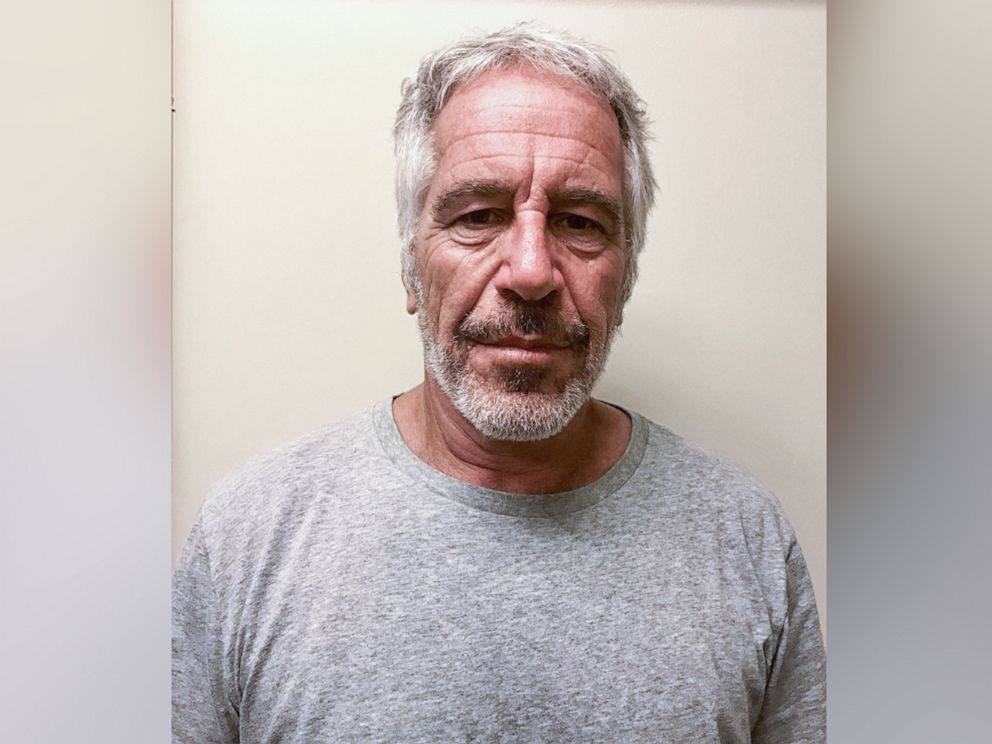Jeffrey Epstein’s In Custody Suicide Is Just One of Many, but Let’s Make it One of the Last
Jeffrey Epstein’s death by suicide just this past Saturday was greeted with shock by the general public and members of congress. The Attorney General of the United States was “appalled” to learn of the death. Epstein’s death by suicide is appalling. But it is no more appalling than every single one of the hundreds of other in custody deaths by suicide every year in the sprawling and growing network of local jails across the United States.

Photo: ABC News
The vast majority of people in jail have not actually been convicted of the crime that detains them. In the hyper-controlled environment of a jail or prison, death by suicide should be 100% preventable. What does a preventable suicide look like? In Louisiana, where I practice, it means that in 2014, in a local jail in southwestern Louisiana, Daquentin Thompson, a 16-year-old hanged himself in a cell where he was housed alone and kept on lockdown 23 hours a day while awaiting a trial. Daquentin tried to tell medical staff at least twice that he was suicidal but he was never even evaluated by medical professional or put on suicide watch.
In a local jail in a large suburb of New Orleans, in 2016 three people, Joshua Belcher, Jerome Bell, and Jatory Evans, died by suicide in the space of a month and half while awaiting trial. All of these people used the same style of window grate to hang themselves. This hanging risk was not corrected until three people had already died. These deaths were not reported to the public until reporters learned of the third death from other sources and directly asked jail authorities.
In the New Orleans jail, there were five deaths by suicide from 2015-2018. Every single one was preventable.
Ryan Miller hanged himself with a phone cord while he was awaiting evaluation and placement on suicide watch. He was left alone in a room and was not observed. Cleveland Tumblin hanged himself from a shower bar. The shower bar had been identified as a possible tie off point for hanging by one of the experts monitoring the jail’s consent decree at least six months before Cleveland’s death. Jaquin Thomas, who was just fifteen years old, hanged himself alone in his cell. The deputy responsible for making fifteen-minute checks did not make rounds for over forty-five minutes, leaving the kids on that tier unattended. Appallingly, deputies actually watched Jermaine Johnson hang himself inside his cell, but did not intervene until Jermaine had asphyxiated and fallen into an irreversible coma.
There is an unfathomable human cost from our jail system’s failure to take basic steps to ensure safe physical environments, access to staff ready and able to watch over people vulnerable to self-harm, and access to mental health professionals.
Liz Cumming
Daquentin, Jerome, Joshua, Jatory, Ryan, Cleveland, Jaquin and Jermaine died in desperate need of help. Each death ripples out far beyond the four walls of the jail that held them at the time of their death. They each left behind mothers, fathers, brothers, sisters, cousins, aunts, uncles, friends, neighbors, teachers, and co-workers, who are ravaged by these deaths. That these deaths were preventable greatly compounds the loss.
Louisiana is not alone in this problem. Suicide was the leading cause of death among prisoners in local jails in 2013 and 2014, the last year for which statistics are available. In local jails, deaths by suicide increased by 3% from 328 people in 2013 to 372 people in 2014.
The investigation into how Epstein had the opportunity to complete his suicide is still in the early days. But two salient facts have emerged: 1) he did not have a cellmate when he was supposed to and 2) he was not receiving required 30-minute checks, likely because of staffing shortages. In the litany of preventable in custody deaths by suicide in my home state of Louisiana, and across the country, I have to disagree with our Attorney General that these are “serious irregularities.” The factors contributing to Epstein’s death by suicide are serious, but they are entirely too regular and that is precisely the problem.
Jeffrey Epstein’s death has opened the jail house door to give the public an all too rare glimpse inside at the essential failure of our jails to keep people safe. We should not let the door slam shut again.
At the local level we must demand not only public reporting of jail deaths, but thorough investigation into what went wrong and accountability of ranking officials responsible for those failures.
If we are going to detain people who have not been convicted of a crime, we have to do so safely. No one should die in jail, regardless of wealth, status, or alleged crime. We cannot accept any detention program that does not include a suicide prevention effort that aims for a 0% suicide rate. That can take a variety of forms – public records request, calls for public meetings, oversight by elected officials – but that will vary greatly from jurisdiction to jurisdiction. Because the specific remedies will depend on the local landscape, the primary universal call to action is to the people who are paying attention now to keep paying attention to the folks who are in jail.
